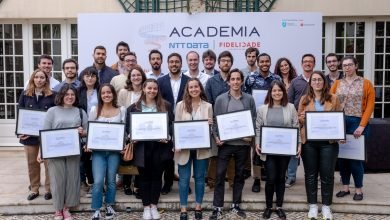Oceans and climate change under debate at the Natural History Museum
The initiative, carried out and transmitted online in the face of the current pandemic crisis, belongs to the Oceans Communication Center, which wants to make Portugal a hub for communication and sharing updated information about the ocean for the entire Portuguese-speaking world.
[dropcap]”T[/dropcap]he Ocean Decade: Climate Change/Ocean Forecast” is the theme of the lecture organized by the Ocean Communication Center on June 8, at 6 pm, as part of the celebration of World Oceans Day. The initiative has the support of UNESCO, through the Intergovernmental Oceanographic Commission (IOC).
The event that will be held in the livestream format, with transmission to the whole world, especially to the universe of Portuguese speaking, takes place at the National Museum of Natural History and Science, in Lisbon. The institution will open its doors purposely on that day to receive the speakers, without an audience, and to ensure that the lecture is carried out and broadcast online.
The invited speakers are the main investigator of the IPMA (Portuguese Institute of the Sea and the Atmosphere) Fátima Abrantes, PhD in Geological Oceanography-Paleoceanography, and João Vitorino, responsible oceanographer at the Hydrographic Institute for the monitoring network of the Cannon Submarino da Nazaré.
This initiative by the Center for Communication of the Oceans, a Portuguese NGO, is part of a special series of lectures promoted by the institution, under the title “CCOceanos: Decade of the Ocean”, bringing together Portuguese speakers and from several Portuguese speaking countries, via livestream remote. The international dissemination of the lectures is ensured through the digital platforms of the UNESCO Intergovernmental Oceanographic Commission (COI-UNESCO) and the Instituto Camões, institutional partner since 2019.
This will be the second lecture of the special series promoted by the Center for Communication of the Oceans (which has other events in its annual program) within the scope of what is generally called “Decade of the Ocean”. At the end of 2017, the United Nations proclaimed the completion of the International Decade of Ocean Science for Sustainable Development, for the period from 2021 to 2030, remembering that the oceans are “the most powerful regulators of the climate”.
Nautical journalist Nysse Arruda, founder and curator of the Ocean Communication Center (CCOceanos), explains that the lectures aim to present and discuss various topics related to the UN initiative, “thus making Portugal a pole of communication and sharing updated information and knowledge about the ocean ”.
UNESCO’s support, through the Intergovernmental Oceanographic Commission, translates into the identification and selection of topics for the lectures and the international dissemination of the links that are part of the CCOceanos video library available on its social network channel YouTube.
According to Vinicius Grunberg Lindoso, responsible for communication at COI-UNESCO, the current collaboration with the Portuguese organization CCOceanos arose from the desire to increase the number of information actions on the ocean and on the UN proclamation among the Portuguese public and citizens of the Portuguese-speaking universe. The objective, he explains, is “to build a greater understanding of the issues that will be addressed at the 2nd UN Conference on the oceans in Lisbon”. An event initially scheduled to take place in the Portuguese capital from the 2nd to the 6th of June, but which was, however, postponed to 2021 due to the current situation of world pandemic crisis.
In addition to the recent renewal of the institutional partnership with the Camões Institute, CCOceanos also has the support of several national and international entities. Among the first include the IPMA (Portuguese Institute of the Sea and the Atmosphere), the Casa da América Latina, the UCCLA (Union of Portuguese-speaking Capital Cities), the CNC (National Culture Center (CNC), the Hydrographic Institute , the Lisbon Academy of Sciences, the Ministries of the Sea and the Environment, and the Lisbon City Council. In the group of international entities are the non-governmental organizations Marine MegaFauna Foundation, from Mozambique, and Onda Verde and the Women’s League for Oceans, Brazil.



